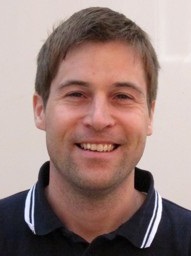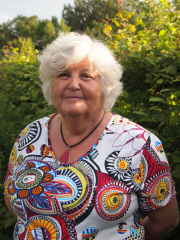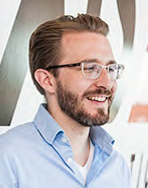EASE 2017 Proceedings
Enter the password below to download the proceedings:
Jan Bosch
Jan Bosch is professor of software engineering and director of the Software Center at Chalmers University Technology in Gothenburg, Sweden. Earlier, he worked as Vice President Engineering Process at Intuit Inc where he also lead Intuit's Open Innovation efforts and headed the central mobile technologies team. Before Intuit, he was head of the Software and Application Technologies Laboratory at Nokia Research Center, Finland. Prior to joining Nokia, he headed the software engineering research group at the University of Groningen, The Netherlands. He received a MSc degree from the University of Twente, The Netherlands, and a PhD degree from Lund University, Sweden. His research activities include evidence-based development, software architecture, innovation experiment systems, compositional software engineering, software ecosystems, software product families and software variability management. He is the author of a book "Design and Use of Software Architectures: Adopting and Evolving a Product Line Approach" published by Pearson Education (Addison-Wesley & ACM Press), editor of several books and volumes and author of a significant number of research articles. He is editor for Journal of Systems and Software as well as Science of Computer Programming, chaired several conferences as general and program chair, served on many program committees and organized numerous workshops.
In the startup space, Jan is chairman of the board of Fidesmo in Stockholm, and Remente, in Gothenburg, Sweden. He serves on the advisory board of Assia Inc. in Redwood City, CA and Burt AB in Gothenburg, Sweden. Jan also runs a consulting firm, Boschonian AB, that offers its clients support around R&D and innovation management. More information about his background can be found at his website: www.janbosch.com.
Speed, Data and Ecosystems: Excelling in a Soft ware-Driven World
We are living in the most exciting time in the history of mankind. The last century has seen unprecedented improvements in the quality of the human condition and technology is at the heart of this progress. Now we are experiencing an even bigger leap as we move towards a new level of digitisation and automation. Ranging from self-driving cars to factories without workers to societal infrastructure, every sensor and actuator is becoming connected and new applications that enable new opportunities are appearing daily. The fuel of this emerging connected, software-driven reality is software and the key challenge is to continuously deliver value to customers. The future of software engineering in this context is centered around three main developments: Speed, Data and Ecosystems. The focus on speed is concerned with the constantly increasing rate of deploying new software in the field. This continuous integration and deployment is no longer only the purview of internet companies but is also increasingly deployed in embedded systems. Second, data is concerned with the vast amounts of information collected from systems deployed in the field and the behavior of the users of these systems. The software-intensive systems industry needs to significantly improve its ability to exploit the value present in that data. Finally, ecosystems are concerned with the transition in many companies from doing everything in-house to strategic use of innovation partners and commodity providing partners. The keynote addresses these three main developments, provides numerous examples from the Nordic and international industry and predicts the next steps that industry and academia need to engage in to remain competitive.
Elaine Weyuker
Elaine Weyuker is a Part Time Visiting Professor at Mälardalen University in Västerås, Sweden, where she mentors PhD students and post-docs, collaborates with faculty, and interacts with local Swedish industry. She continues to live primarily in the US. Prior to this, Elaine was a Fellow and Distinguished Member of the Technical Staff at AT&T Labs, a Professor of Computer Science at the Courant Institute of Mathematical Sciences of NYU, a Lecturer at the City University of New York, a Systems Engineer at IBM, and a programmer at Texaco.
Her research expertise includes techniques and tools to improve the reliability of software systems through systematic validation activities, including the development of testing, assessment and software fault prediction models. Prior to that, Elaine did research in Theory of Computation and is the co-author of a book "Computability, Complexity, and Languages". She has authored more than 170 papers in these fields.
Elaine is a member of the US National Academy of Engineering, an IEEE Fellow, and an ACM Fellow and has received IEEE's Harlan Mills Award for outstanding software engineering research, and ACM/SIGSOFT Outstanding Research Award.
She was the recipient of the 2011 US President's Volunteer Service Award, the 2010 ACM President's Award, the ACM SIGSOFT Retrospective Impact Paper Awards in 2009, the 2008 Anita Borg Institute Technical Leadership Award, Rutgers University 50th Anniversary Outstanding Alumni Award, and the AT&T Chairman's Diversity Award as well has having been named a Woman of Achievement by the YWCA.
She was the chair of the ACM Women's Council (ACM-W) from 2004 - 2012, and a member of the Executive Committee of the Coalition to Diversify Computing.
Should She Who Owns the Data be Queen?
Lars-Ola Damm
Lars-Ola Damm has for more than 15 years been employed by Ericsson, which is one of the largest ICT companies in the world. There he has had several roles, including software development assignments, driving global process improvement initiatives, and various management positions. He has during this time also been active in several research collaboration projects between Ericsson and academia. Currently, he is line responsible for a software product that is a core application in the mobile network, managing transactions for almost 2 billion subscribers world-wide.
Furthermore, he has a Ph.D. in the field of Software Engineering, including a number of published empirical studies. The key focus of the thesis was the proposal of a quality measurement approach that also became widely adopted throughout the company.
Lessons learnt from industry-academia collaboration on global software engineering.
Ericsson has collaborated with academia regarding research on Global Software Engineering (GSE) over the last 8 years. The key focus of the research has been to evaluate different strategies to distributing software development across multiple geographical locations. The results include guidelines and lessons learned on software transfers and distributed development. Furthermore, case studies have been conducted to determine how efficient different strategies are. This talk will summarize this research from an industry-partner perspective. It will also provide some recommendations on considerations for researchers to make to be successful with industrial case studies.
Gudrun Svensson
Gudrun Svensson Ph.D, is senior lecturer in Swedish as a second language at the Linnaeus University in Växjö. For many years she taught Swedish as a second language, Swedish and English at upper secondary level. At present she is active in teacher training, in-service training and skills development in the field.
Doctor Svensson has done research into linguistic variation in multilingual environments but today she aims her research at in-field studies of mutlilingualism in cooperation with teachers and students. An increasing focus for her studies is translanguaging as an element in all school subjects.
Based on research into successful learning of a second language she is also involved in the development of digital learning tools in Swedish as a second language.
Translanguaging space in an educational game.
The educational adventure game Sweet City is developed by Universal Learning Games in cooperation with Gudrun Svensson, a language researcher at the Linnaeus University.
The linguistic construction of the game emanates from two language learning principles, Total Physical Response (Asher 1988) implemented in the game through an avatar that gives the learner the opportunity to monitor his or her own learning, and Translanguaging (i.e. Williams 1996) with the concept that all languages that an individual has access to are part of a common well of linguistic experiences. Thus, all linguistic development relies on previous experience which is a support for learning and memory.
In Sweet City this support is implemented by the opening of labels with key words and central concepts that are tied to phenomena in the game, and can be used by the player to create meaning and perform the required assignments. By doing this, languages and actions are closely tied to each other.
Game play is designed for receptive language ability with oral and written dialogues that are to be listened to and read in order to perform assigned quests. The dialogues can be repeated and the player can choose support from labels with heritage languages common in Swedish schools: Tigrinya, Arabic, Dari, Somali and also the widespread English. As in all adventure games there are dangers to overcome, problems to solve, items to sell and buy, points and money to earn. There is a special display where the student, the teacher and a researcher can monitor the use of labels, time spent, repetitions, performed actions and the results of special check points which hint at the student’s overall comprehension of the story in the game.
Baldvin Gislason Bern
Baldvin Gislason Bern is a Research and Development Expert at Axis Communications, where he works mainly with test strategies and improvement activities. Past experiences include heading teams of engineers from Bosch, Panasonic, Siemens and Sony in creating API standards for physical security devices such as security cameras and physical access control systems. Baldvin is currently involved in the Software Center research collaboration, where companies cooperate with universities on software engineering research aimed at improving the development practices of the companies.
From theory to practice – Experiences of industry-academia collaboration from Axis Communications
The differences between academia and industry can pose a challenge for industry to apply research to their way of working. Axis has, ever since it was founded in a university dorm room in 1984, had close cooperation with academia. In his talk, Baldvin will talk about Axis’ experience with industry-academia collaboration; the successes, the disappointments and what we see as a way forward.

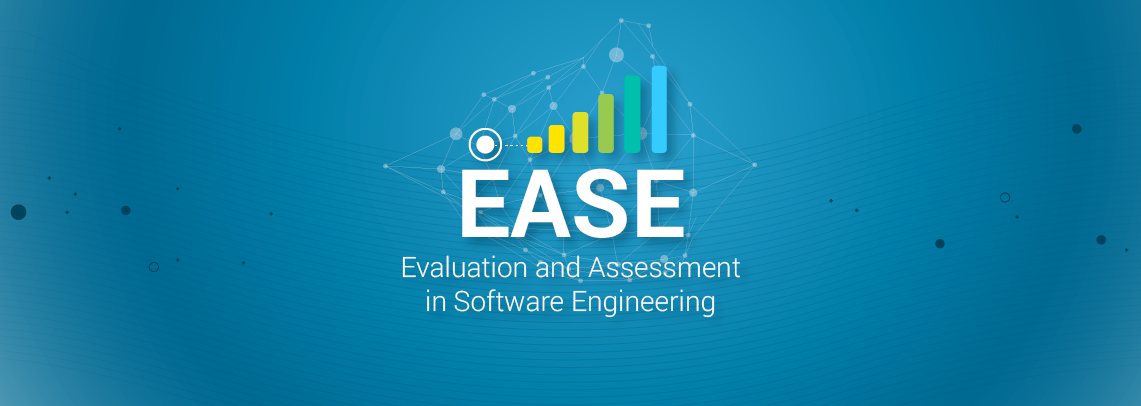





























































































































































































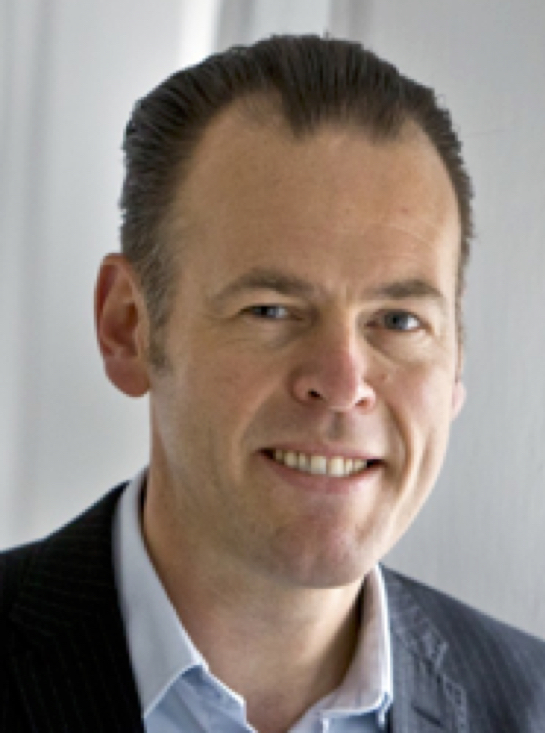
.jpg)
